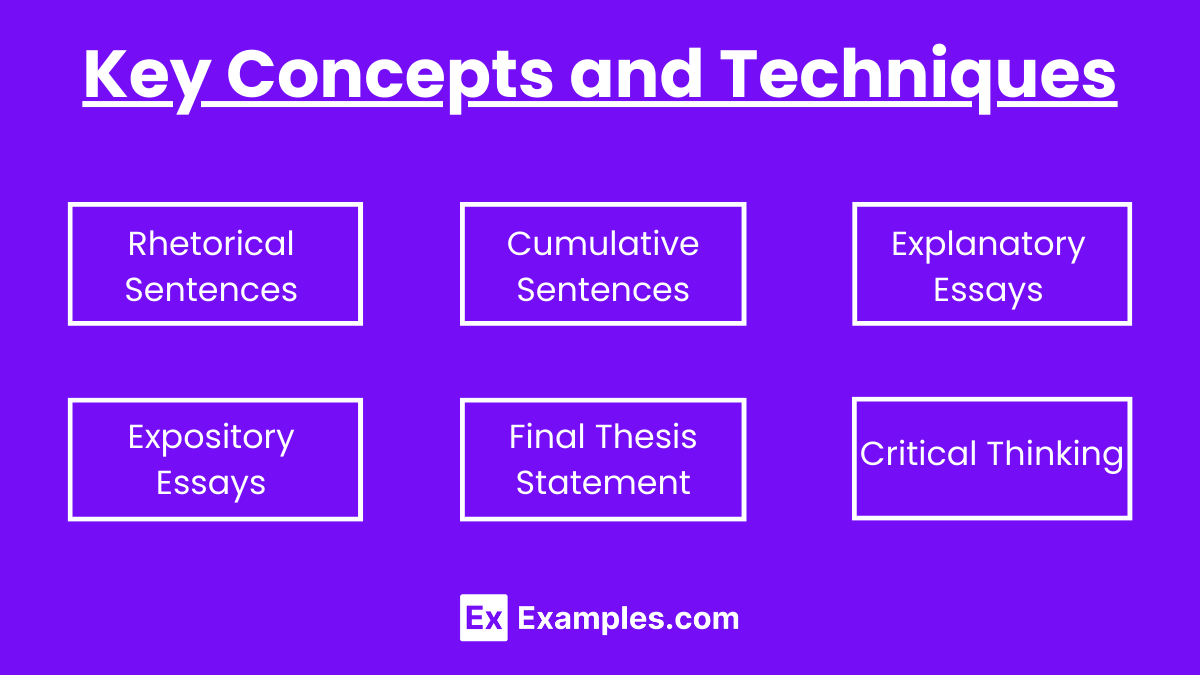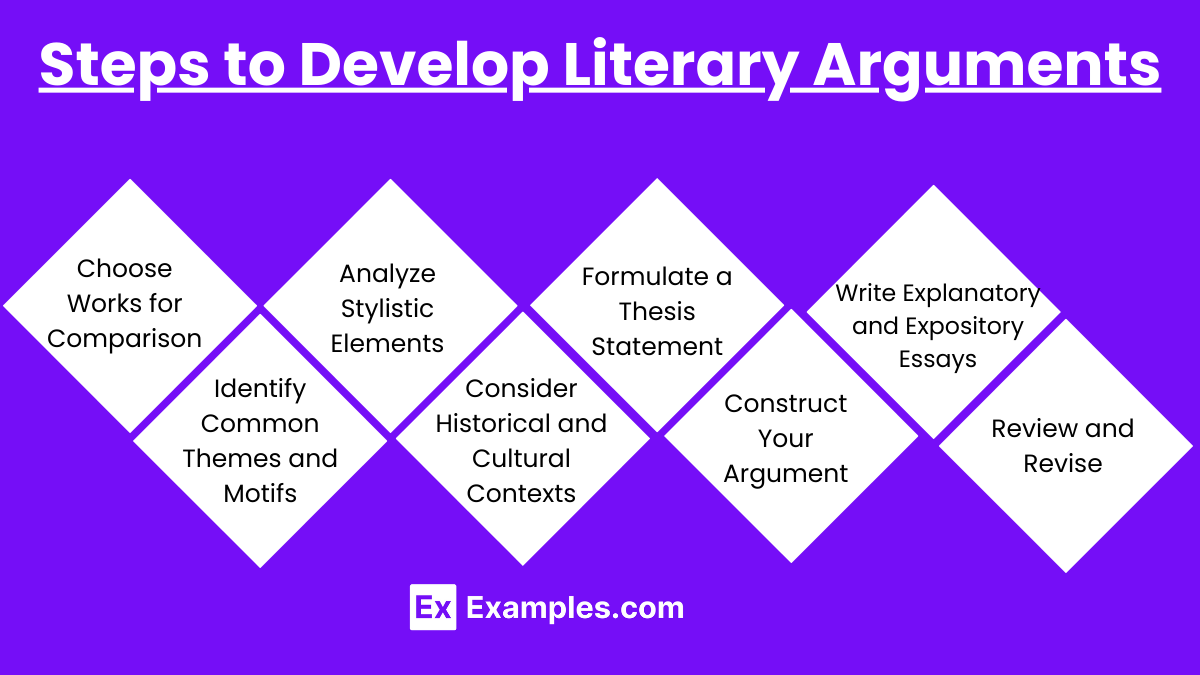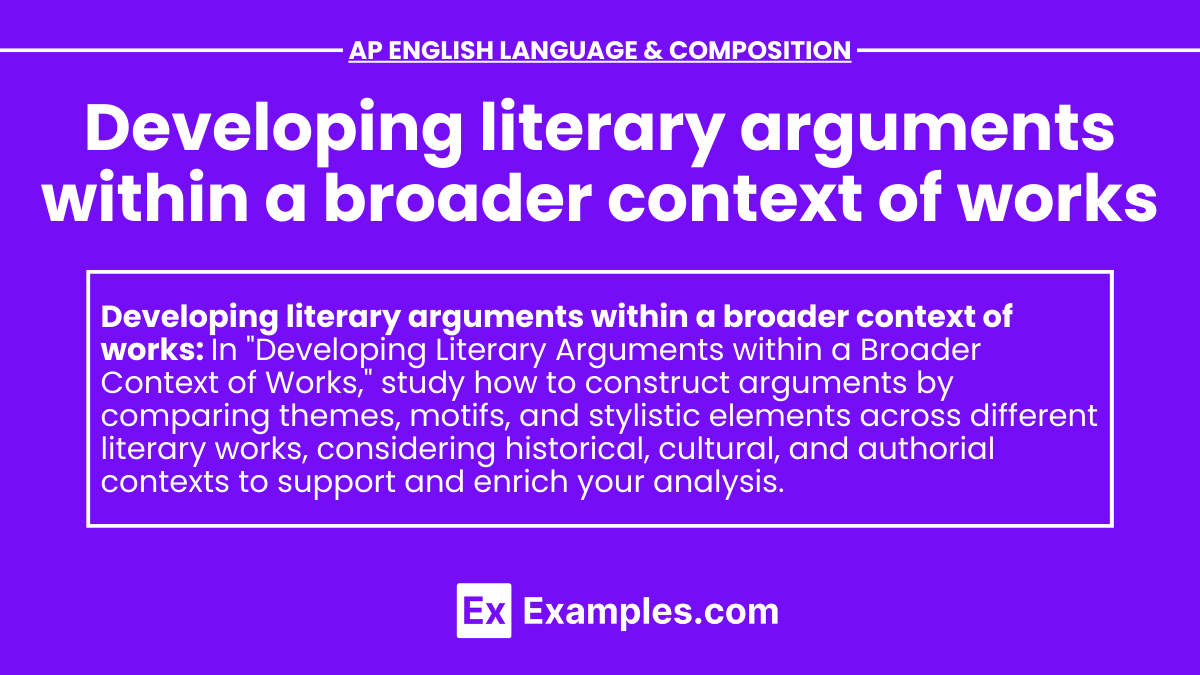In AP English Language and Composition, developing literary arguments within a broader context of works involves crafting rhetorical sentences and cumulative sentences to build comprehensive analyses. This skill enhances argumentative speech and argumentative writing by comparing themes, motifs, and stylistic elements across various texts, considering historical, cultural, and authorial contexts to support and enrich your literary analysis.
Learning Objectives
The learning objectives for developing literary arguments within a broader context of works include mastering the use of cumulative sentences to build depth in analysis, crafting explanatory essays and expository essays to clearly present ideas, constructing rhetorical sentences for persuasive impact, formulating a final thesis statement that encapsulates your argument, and applying critical thinking to compare and analyze themes across different literary works.
Key Concepts and Techniques

Rhetorical Sentences
- Crafting sentences that persuade or influence the audience.
- Using rhetorical questions, parallelism, and other rhetorical devices to strengthen arguments.
Cumulative Sentences
- Building sentences that start with a main idea and add details to expand and elaborate.
- Enhancing the depth and complexity of your analysis.
Explanatory Essays
- Writing essays that explain ideas or concepts clearly.
- Providing thorough explanations and detailed analysis of literary works.
Expository Essays
- Composing essays that investigate and present information on a specific topic.
- Offering evidence and examples from multiple works to support your thesis.
Final Thesis Statement
- Formulating a clear and concise thesis that encapsulates your main argument.
- Ensuring that the thesis is specific, arguable, and relevant to the broader context of the works analyzed.
Critical Thinking
- Applying critical thinking skills to compare and analyze themes, motifs, and stylistic elements.
- Evaluating the significance of historical, cultural, and authorial contexts in shaping literary works.
Steps to Develop Literary Arguments

Choose Works for Comparison
- Select literary works that share common themes, motifs, or stylistic elements.
- Ensure that the works offer enough material for a detailed comparative analysis.
Identify Common Themes and Motifs
- Look for recurring themes and motifs in the selected works.
- Consider how these themes and motifs are developed and presented by different authors.
Analyze Stylistic Elements
- Examine the authors’ use of literary devices, narrative techniques, and stylistic choices.
- Compare how these elements contribute to the overall meaning and impact of the works.
Consider Historical and Cultural Contexts
- Research the historical and cultural backgrounds of the works.
- Analyze how these contexts influence the themes, characters, and narratives.
Formulate a Thesis Statement
- Develop a clear and specific thesis that encapsulates your main argument.
- Ensure that your thesis addresses the broader context of the works analyzed.
Construct Your Argument
- Use rhetorical and cumulative sentences to build a comprehensive and persuasive analysis.
- Support your argument with evidence and examples from the texts.
Write Explanatory and Expository Essays
- Compose essays that clearly explain and investigate your chosen themes and arguments.
- Provide detailed analysis and evidence to support your thesis.
Review and Revise
- Review your essays for clarity, coherence, and logical flow.
- Revise to ensure that your arguments are well-supported and effectively presented.


